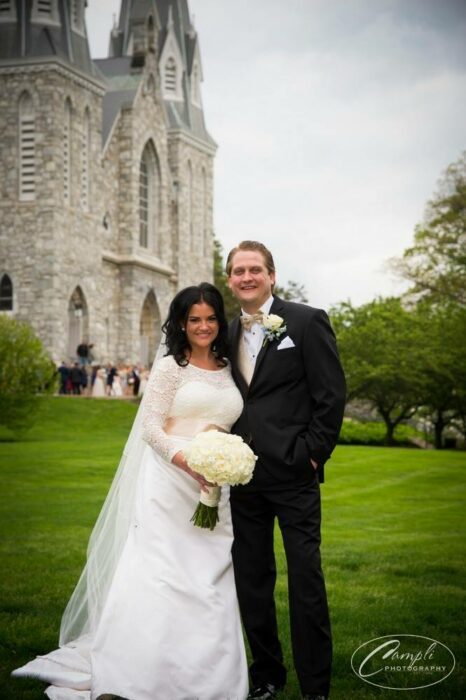For years now, I have worn a necklace that is monogrammed with the word “Hope”. It is a subtle reminder of what I have been through, where I am now, and the importance of keeping optimism for the future. I had a life that many dream of having. I was a competitive cheerleader and gymnast, played the violin, and had several different groups of great friends. I was a morning news anchor for our Township’s television channel where I went live on TV each morning with a big smile on my face to deliver the news, weather, and sports updates. I was outgoing and loved to be around people. Growing up I had all of the things I needed and more. My parents were both incredibly hard workers. My mom is a nurse practitioner, and my dad is a lawyer. One of four daughters, from the outside, looking in, my life was ideal and picturesque. We had it all.
The darker side
It’s funny how things can appear one way until you see them from another angle. Inside my world was messy and chaotic- not the picturesque painting that many saw when they looked at me. Internally I struggled with anxiety, I wanted things to be organized and felt I needed to do things a certain way, and if I didn’t then, I would have this unsettling feeling that would not go away until I did what “it” wanted. I felt like I was being driven by an outside force. I always felt that deep down, my brain was wired differently.
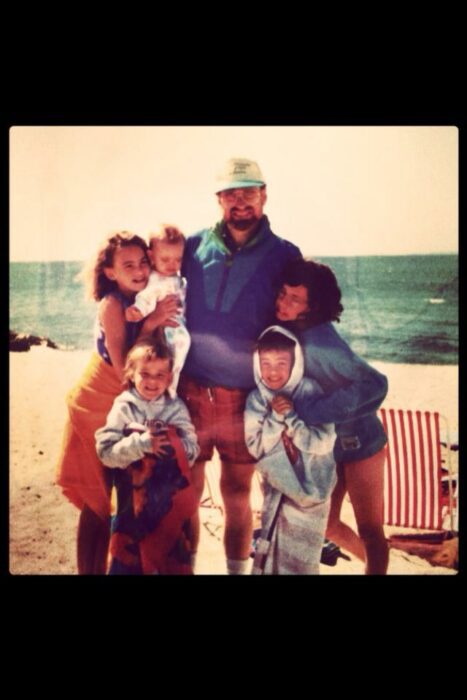
I was raised a Catholic. My beliefs are very important to me. From an early age, I learned about the importance of being morally just and the power of prayer. I started to believe that if I didn’t pray in a specific way, something terrible would happen to someone that I loved. It was a thought that haunted me and caused me to get trapped in endless hours of prayer. It had to be “just right”. The consequences of it not being done correctly were too much to bear.
The slightest chance that something bad could happen to someone that I cared about was enough to make me perform the rituals. I didn’t worry about myself, instead all the people closest to me. I felt responsible for everything and everyone that I loved.
Things that seemed of little importance to others, I became fixated on. Thoughts like, “did I fold the laundry correctly?” would flood my mind. This would soon turn to darker scenarios, if you didn’t do it just as your mom showed you how to, then something bad might happen to her. This would carry over into many activities that I did. I was constantly asking my parents “what if…?” and “are you sure?” It could be the most mundane things and I felt compelled to gain certainty from them. I needed to “know”. I couldn’t trust my instincts. I was full of doubt.
Stolen joy
When I was 13 years old and still a competitive gymnast, I became a camp counselor, teaching gymnastics to younger kids in the summer months. Gymnastics and cheerleading have always been my outlet. I cherished it and enjoyed the freedom that I felt when I was out there doing what I loved with friends who loved me back. I became very good at it. This was my escape from reality. It was fun until the thoughts turned towards this. It seemed that these intrusive thoughts always latched onto the things I cared for the most. It was as if this outside force was constantly trying to get me to pay attention to all of the negative “what-ifs?”. It was at camp when I indeed recognized how much this thing was impacting me and interfering with my life. I became immobilized. Thoughts that I could not land on certain colored mats ran through my mind. Red became a “bad” color and if I landed on it, it meant something awful would happen to someone I loved. I couldn’t focus, I was too busy trying to appease this thing. This thing didn’t have a name. It was an awful presence that was bent on making my life miserable, so it seemed. I was so embarrassed, that I couldn’t tell anyone or explain to them what was happening to me. I knew I needed help.
My family has had a vacation home on Martha’s Vineyard where we have vacationed my whole life. It is known for its privacy, beautiful beaches, seafood, and beautiful night skyline. One evening my dad took me and my sisters out to look at the stars on the beach.
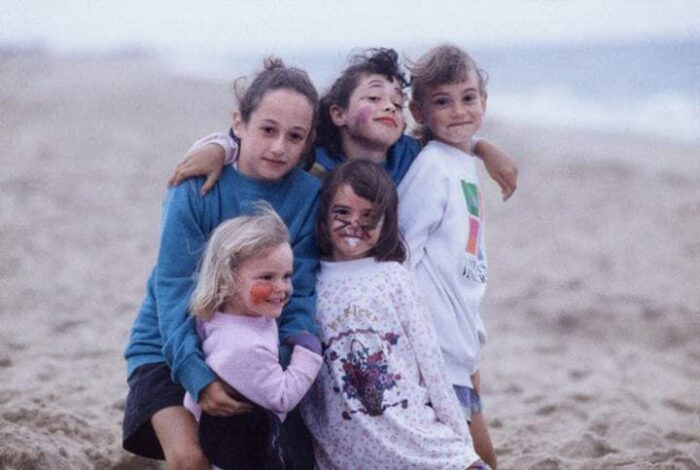
At that moment I felt as though I was so tiny compared to this very big world. I cannot explain it, but something within me shifted and I began to fear that I wasn’t real, nothing was real. This caused a deep sadness to well up inside of me. What does it all mean? I was confused by these thoughts. Following this incident, while still on the trip, I began to come up with ways to help ease the anxiety that these thoughts caused me. At least it would reduce the feelings for a little while. Unfortunately, they always returned. I would walk a certain way, in a particular manner to undo the thoughts. If I didn’t do it the “right” way that my brain told me to, I would redo it, until it felt okay. If I didn’t do this then it must have meant the world wasn’t real and this thought was unimaginable to me.
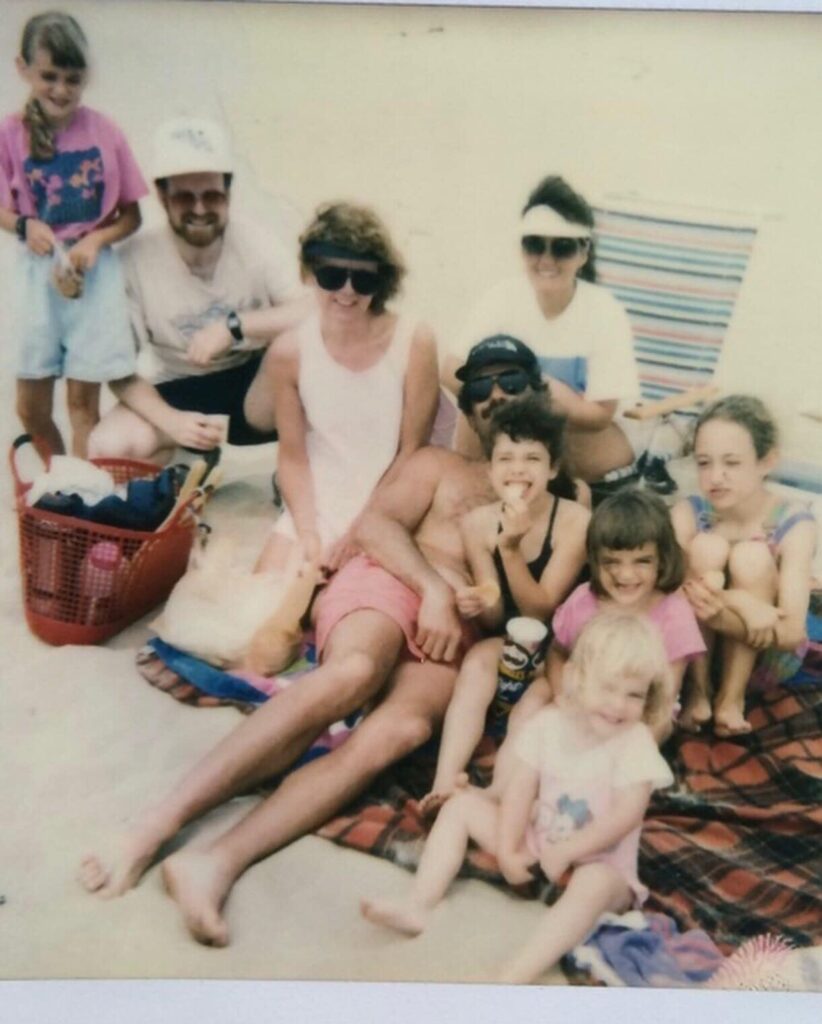
The turning point
When we arrived home from that trip my parents knew I needed more help than they could give. Thankfully they knew the signs that something wasn’t okay and I needed to see a therapist. We were able to find an excellent psychologist that I still see to this day. I was quickly diagnosed with Obsessive Compulsive Disorder (OCD) as well as depression.
This “thing” that I had struggled with for so long finally had a name. As I learned more and more about this mysterious illness it became clear that it was the source of my anxiety and sadness.
I started Exposure and Response Prevention (ERP) with my therapist. This was a long and tedious journey and one that continues even today. ERP is such an individualized and personal experience for people. In my ERP I would have to write out imaginary scripts and envision my worst-case scenarios. I would imagine them out in my mind and sit through the discomfort that I felt hearing these things out loud. I would read them out loud over and over again, in session and in between sessions. My therapist explained how important homework is when it comes to recovery. I knew that the work I did in between sessions would be the most important work I would ever do to help myself. I made tape recordings of triggering words and played them out loud over and over again until they caused me little or no anxiety. I also had other more physical compulsions that I worked on resisting. As I became older my intrusive thoughts changed. At one point I was fearful of hitting people while driving. My therapist had me keep driving even if I thought I felt a bump. My therapist had me touch the color red and sit with the discomfort repeatedly. This was difficult work but I was determined to feel better. I wanted my freedom back.
As the thoughts changed my ERP changed. It became a lifestyle in which I was developing the tools to use no matter what content the thoughts took on.
I continue to see my therapist now for support, but I have the tools that I need. I can sit with the uncertainty and the anxiety that these thoughts cause. ERP hasn’t gotten rid of the thoughts but they have become less frequent and when they do show up I am much less bothered by them. I understand what this disorder is and how to treat it. I am no longer a prisoner to it.
Becoming an advocate
The stigma surrounding mental health is still an issue that needs to be addressed. I struggled in silence for so long before sharing my story. I was not the typical “face” of someone who had a mental illness. Over time and through my experience I have learned that there is no typical “face” of mental illness. It is me, it is you, it is your neighbor, your brother, your friend, your pastor, your teacher…it can happen to anyone. Mental illness doesn’t discriminate.
But we are so much more than just the illness that visits us. It is time that we all have conversations about this, in our communities and our families.
You never know how your story can inspire others. In just saying these things out loud and opening up the conversation, we allow people to see they are not alone. You don’t have to suffer in silence. Having a mental illness doesn’t make you weak, it makes you strong.
What I am up to currently
I graduated from Villanova University in 2009 with a degree in communications and was a cheerleader and member of Kappa Kappa Gamma. After undergraduate school, I went back to receive my Masters in Elementary Education from Rosemont College. I also got married!
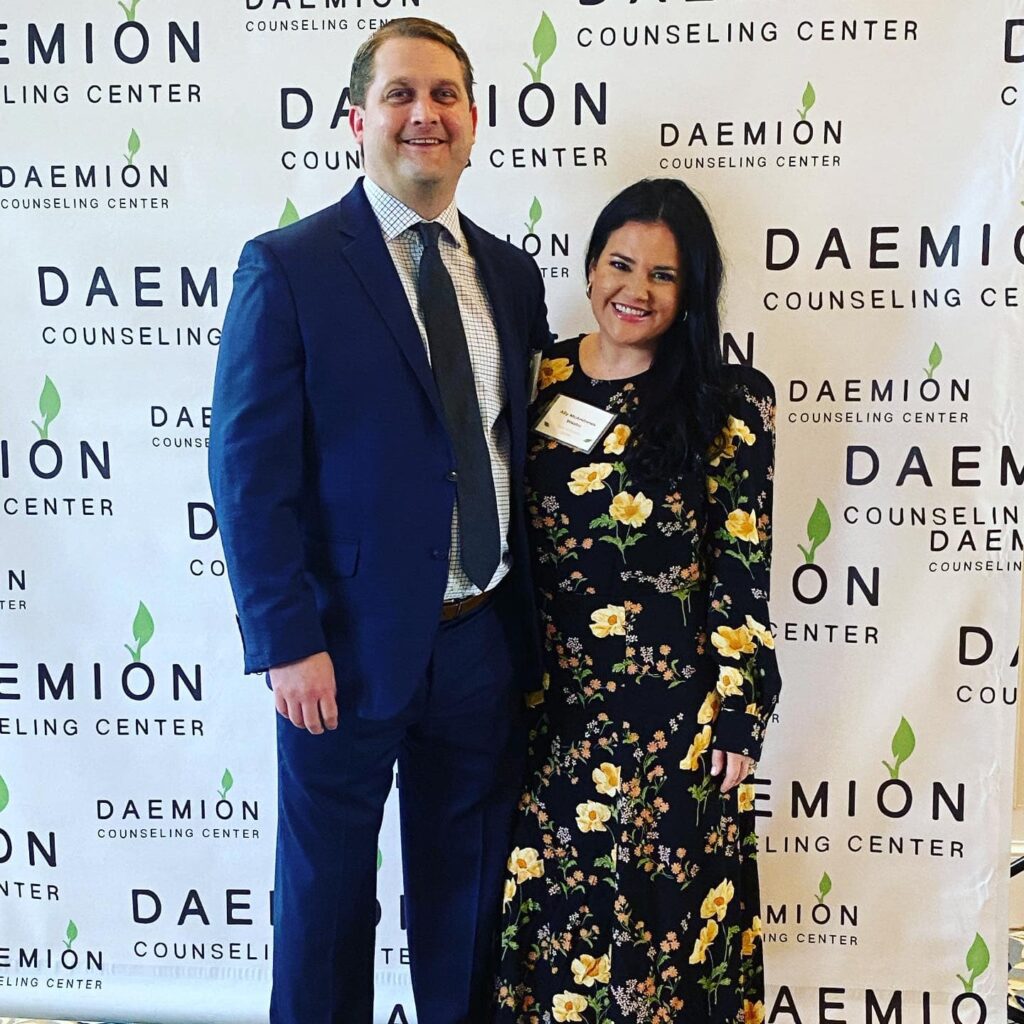
These two degrees provide an optimal background for the position of Director of Communications and Marketing at McAndrews, Mehalick, Connolly, Hulse, and Ryan P.C., a law firm founded by my father, Dennis McAndrews, in 1982. Since then, the firm has grown with offices across Pennsylvania, Delaware, and The Metropolitan Washington D.C. area. We have a national reputation in disability, special education, estate planning, and Title IX cases regarding students involved in disciplinary matters at universities. A great deal of our work involves advocating for individuals with disabilities, including mental illness. It is incredibly rewarding to work for a firm that strives to better the lives of our clients. I feel that my own personal experiences have helped me connect with our clients. I currently serve on the board of a mental health counseling center and enjoy writing and speaking about my personal experiences.
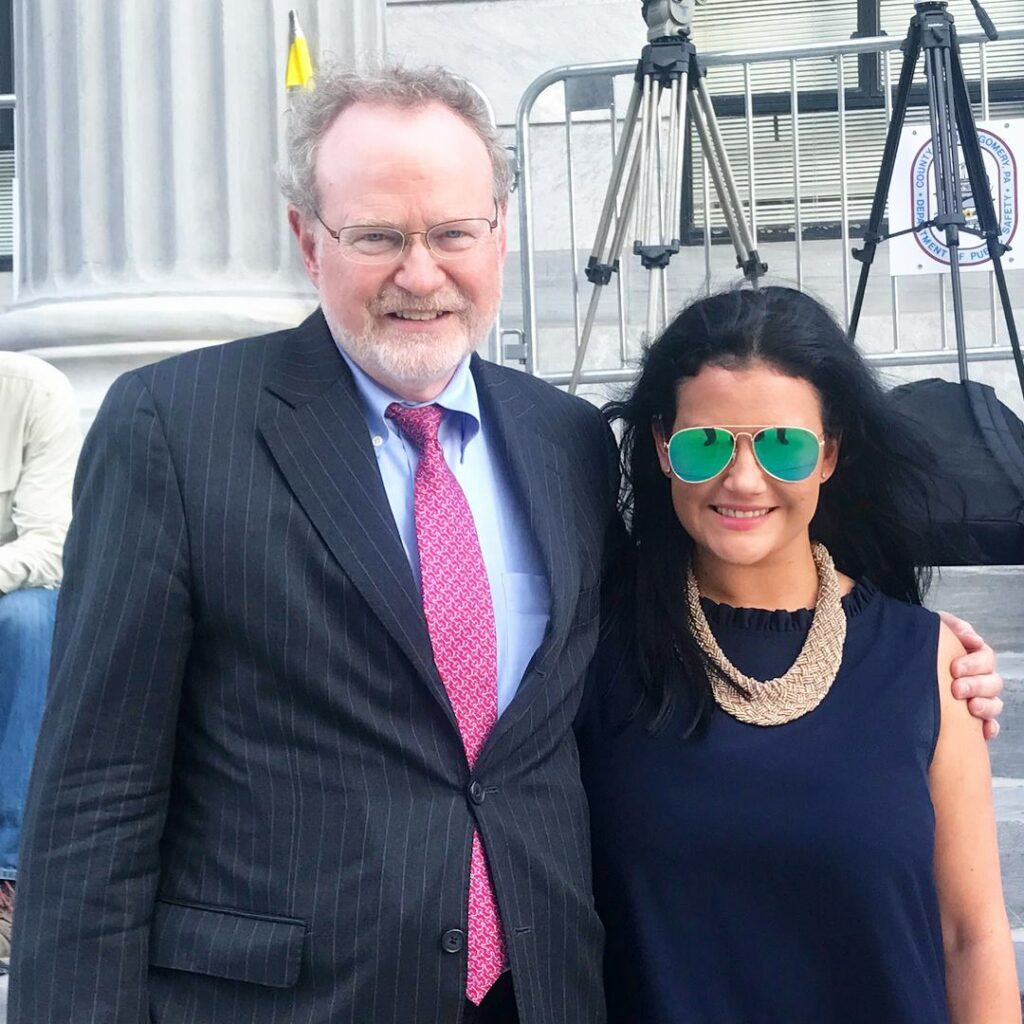
If you want to learn more about what our work is about, visit us for tons of great resources, including mental health information at instagram.com/mcandrews_law_offices/ or our website: www.McAndrewsLaw.com – I have written several articles that are on our website. These articles often go out in our firm’s free electronic newsletter called “The MLO Minute”. A great deal of my work as Director of Communications and Marketing involves creating, designing, and sending out these newsletters. If anyone would like to receive them, please email mcandrewslawoffices@gmail.com and I will add their email address to our distribution list! I send out lots of great resources!
